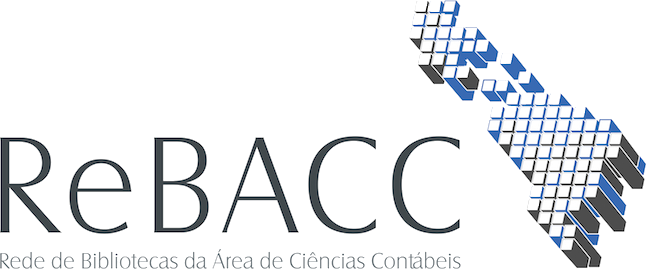Use este identificador para citar ou linkar para este item:
http://rebacc.crcrj.org.br/handle/123456789/6916Registro completo de metadados
| Campo DC | Valor | Idioma |
|---|---|---|
| dc.creator | Lustosa, Paulo Roberto Barbosa | - |
| dc.creator | Rodrigues, Fernanda Fernandes | - |
| dc.creator | Gonçalves, Rodrigo de Souza | - |
| dc.creator | Vieira, Leonardo | - |
| dc.date | 2011-03-13 | - |
| dc.date.accessioned | 2020-08-13T19:05:30Z | - |
| dc.date.available | 2020-08-13T19:05:30Z | - |
| dc.identifier | http://asaa.anpcont.org.br/index.php/asaa/article/view/15 | - |
| dc.identifier.uri | http://rebacc.crcrj.org.br/handle/123456789/6916 | - |
| dc.description | National and international regulatory agencies by issuing new standards have tried to bring the accounting recorded values near to economic values. Nevertheless, it is understood that the latter carry a deeper level of subjectivity, on the grounds that completely new values will be obtained by the adoption of different conditions. This study aims to perform a comparative analysis between two company valuation methods: the Discounted Cash Flow and the Residual Income Valuation while performing the impairment test. The study case uses the database prepared by a telecommunications company to its subsidiary in the Internet sector for the purpose of the impairment test assessment. Some points have been identified as deserving special attention in a company’s valuation assessment, namely the discount rate and the growth rate. The results show that: 1) a firm’s economic value is sensitive to the use of a sole growth rate to calculate the perpetuity, considering that any changes in the rate will alter the decision based on the test; 2) the setup of a discount rate as a parameter in a firm’s valuation assessment is a fundamental point for the write-off decision resulting from an impairment test. | - |
| dc.format | application/pdf | - |
| dc.language | por | - |
| dc.publisher | AnpCONT | - |
| dc.relation | http://asaa.anpcont.org.br/index.php/asaa/article/view/15/21 | - |
| dc.rights | Direitos autorais 2014 Advances in Scientific and Applied Accounting | - |
| dc.source | Advances in Scientific and Applied Accounting; v. 3, n. 3 set-dez (2010); 290-310 | - |
| dc.source | 1983-8611 | - |
| dc.subject | Intangible assets. Impairment. Cash Flow. Residual Income | - |
| dc.title | INTANGIBLE ASSETS IMPAIRMENT TEST ISSUES: THE CASE OF A BRAZILIAN TELECOMMUNICATIONS COMPANY | - |
| dc.type | info:eu-repo/semantics/article | - |
| dc.type | info:eu-repo/semantics/publishedVersion | - |
| Aparece nas coleções: | Revista ASAA | |
Arquivos associados a este item:
Não existem arquivos associados a este item.
Os itens no repositório estão protegidos por copyright, com todos os direitos reservados, salvo quando é indicado o contrário.

